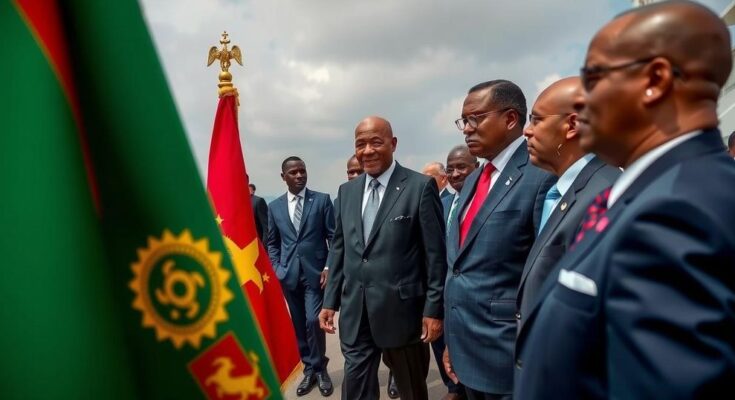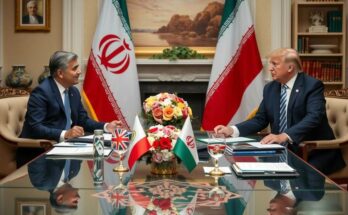President Joe Biden’s visit to Angola marks a historic effort to enhance U.S.-Africa relations and counter Chinese influence. His focus on the Lobito Corridor aims to bolster trade by linking mineral-rich regions in central Africa to the Atlantic, facilitating the export of vital resources. This partnership reflects a shifting geopolitical landscape as Angola seeks to reposition itself amid changing global investment dynamics.
President Joe Biden’s inaugural visit to Angola marks a significant step in reaffirming U.S. engagement in Africa, particularly in countering China’s growing dominance on the continent. This visit underscores the United States’ commitment to enhancing trade and investing in crucial infrastructure projects, most notably the Lobito Corridor. This corridor aims to connect mineral-rich regions in the Democratic Republic of Congo and Zambia to Angola’s Lobito port, facilitating the transport of essential resources like copper, cobalt, and lithium, which are vital for the green economy and electric vehicle production.
Biden’s presence in Angola is historic, as he becomes the first sitting U.S. president to visit the country, reflecting improvements in bilateral relations. Angola, previously aligned with China and Russia after gaining independence from Portugal in 1975, has shifted its foreign policy under President João Lourenço’s leadership since 2017. Analysts suggest this new direction fosters a non-aligned, pragmatic approach, focusing on partnerships without strict ideological confines.
In the larger context of U.S.-Africa relations, Biden’s visit highlights an investment of approximately $600 billion from G7 nations and private sectors toward infrastructure projects throughout the continent, a strategic alternative to China’s Belt and Road Initiative. While some experts express cautious optimism about the sustainability of such endeavors amid the changing U.S. political landscape, the Lobito Corridor remains crucial for regional economic development. Angola has potential as an investment destination, especially amid its efforts to rehabilitate infrastructure destroyed during a protracted civil war.
Overall, the Lobito Corridor represents not only a vital trade route for African resources but also a strategic mechanism for fostering U.S. interests and relationships on the continent. Biden’s visit reinforces America’s commitment to fostering a multipolar environment in Africa, ensuring stakeholders, from local governments to international investors, can engage collaboratively in developing the region’s vast resources. This initiative not only bolsters Angola’s economy but positions it as a pivotal player in future geopolitical and economic discussions.
President Joe Biden’s visit to Angola is set against a backdrop of increasing concerns about U.S. relations with Africa and the need for strategic partnerships amidst China’s expanding influence. Angola’s historical alliance with China and Russia has evolved under the leadership of President João Lourenço, who has steered the country towards a more pragmatic foreign policy. The Lobito Corridor initiative highlights the importance of U.S. infrastructure investments in Africa as a counterbalance to China’s Belt and Road Initiative, which has faced criticism for creating unsustainable debt in partner countries. This context sets the stage for understanding the implications of Biden’s visit and the broader objectives of U.S. foreign policy in Africa.
Biden’s visit to Angola emphasizes the United States’ renewed commitment to African partnerships and economic collaboration, particularly through infrastructure development like the Lobito Corridor. This initiative not only aims to facilitate the transport of critical minerals but also symbolizes a strategic shift in U.S. foreign policy towards a more engaged and multipolar approach in Africa. As Angola seeks to rebuild its economy and image post-civil war, this partnership may become vital for both nations while providing a counterweight to the pervasive influence of China.
Original Source: www.bbc.com




